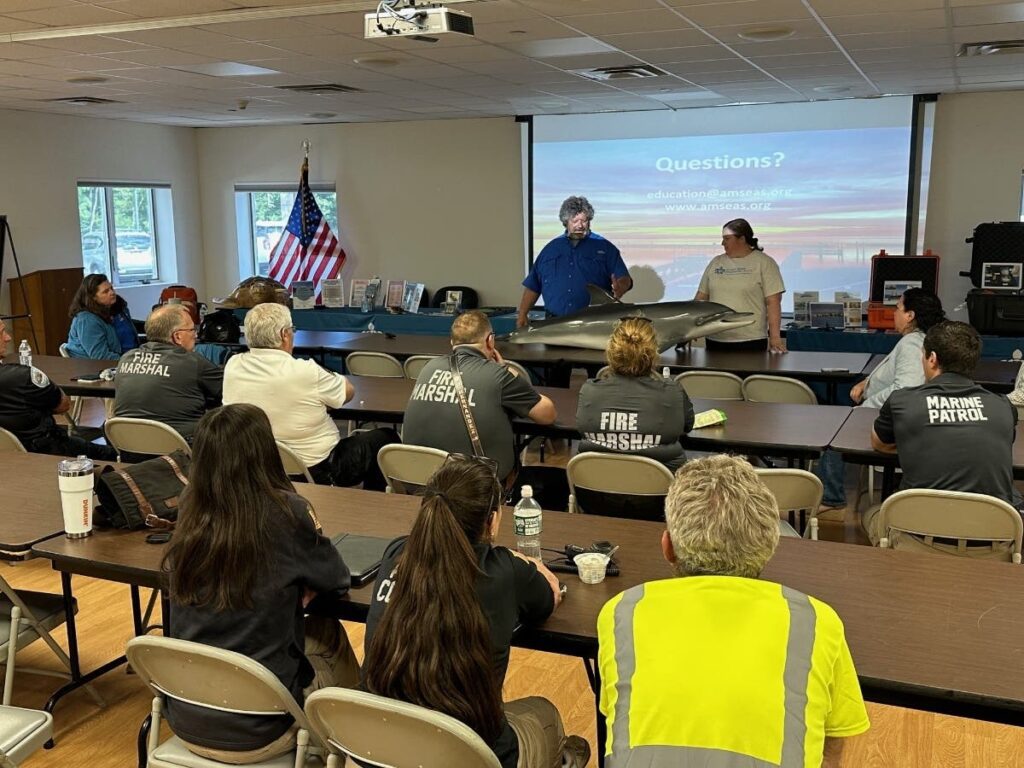SOUTHAMPTON, N.Y. — Aiming to deal with the whales, turtles and seals that frequently wash up on local shores, Southampton city officials recently participated in marine mammal and sea turtle first response training.
Southampton Town's public safety and emergency management department partnered with the Atlantic Marine Conservation Society to provide the training.
The training, held at the Hampton Bays Volunteer Ambulance Corps building, featured personnel from Southampton city departments including animal control, marine patrol, the fire marshal's office, code enforcement and emergency management.
Southampton councilor Cindy McNamara. The Brookhaven Town Water Patrol and Village of Quogue Police Department also participated.
Experts from the Atlantic Marine Conservation Society provided information on marine mammals commonly found in the area. ways to better help animals in danger; best practices for dealing with dead marine mammal accidents; and how the Atlantic Marine Conservation Society serves as an emergency response partner for marine mammal incidents.
“I probably learned as much about the different types of excavators and other heavy equipment needed to handle whales of different sizes as I did about the actual marine mammals,” McNamara said.
The city's Emergency Manager, Ryan Murphy, added, “The Atlantic Marine Conservation Society is an excellent emergency response partner for the city.”
He added: “Having an organization like the Atlantic Marine Conservation Society in our jurisdiction is a huge advantage for us. They provide expertise when dealing with marine mammals and are also responsible for carrying out examinations and post-mortems to ascertain what may have happened to the dead marine mammals that may be found in our waters and on our shores.”
Atlantic Marine Conservation Society Founder and Chief Scientist Robert A. DiGiovanni, Jr. also commented, “We are pleased to partner with the city to provide this training and education. It is also always important to network and collaborate with our partners in non-emergency settings like this so we can continue to work efficiently and successfully during emergency response scenarios.”
